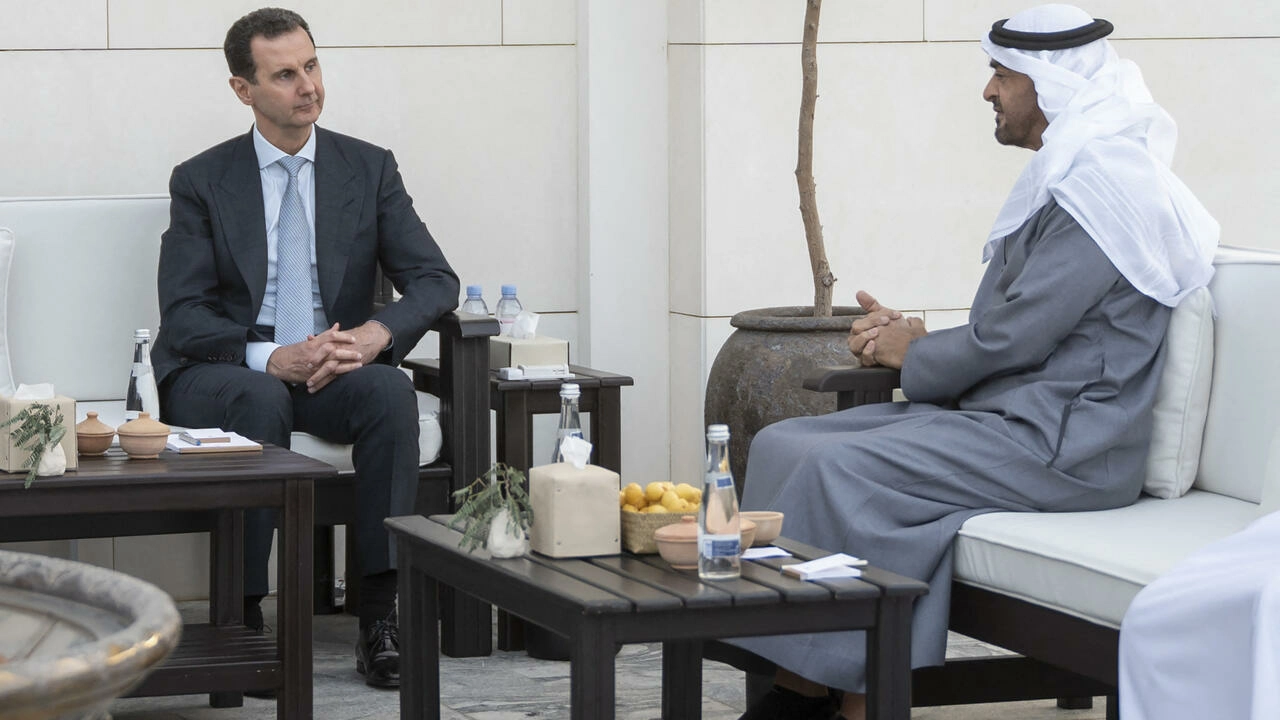Over the past four years, there have been changes in the public relationship between the Assad regime and the United Arab Emirates (UAE), following a diplomatic break that aligned with the Arab and Gulf position on the regime, at the beginning of the Syrian revolution.
The changes began with the return of diplomatic relations and the opening of the UAE Embassy in Damascus on December 27th, 2018. This led to the visit of the regime’s president, Bashar al-Assad, in March to the UAE, and his meeting with the Vice President of the State and Abu Dhabi Governor Mohammed bin Zayed, and the Deputy Prime Minister and Ruler of Dubai, Mohammed bin Rashid al-Maktoum.
The visit aims to “enshrine the Arab role in the Syrian issue and the Emirati conviction of the need for political communication, openness, and dialogue at the regional level,” said Anwar Gargash, diplomatic advisor to the UAE president. However, the economic objectives that could result from the visit, particularly for the Assad regime, cannot be overlooked.
Previous investments
Prior to 2011, Emirati companies had a strong presence in the Syrian market, through huge investments amounting to billions of dollars, as the volume of Emirati investments in Syria reached 20 billion US dollars, according to the Minister of Government Sector Development in the UAE, Sultan bin Saeed Al-Mansouri, in January 2008.
Among the most important projects invested by UAE companies were Emaar UAE’s “Gate 8” project in Damascus, the “Five Shams” project in the Yafour area at a cost of $1 billion, and the “City of Banyan” project signed between Syrian investor Shaher Mohammed Riad al-Taqi and the Emirati Banyan Group to develop a tourism investment real estate project valued at about $15 billion near Qatana area in Damascus countryside, the UAE newspaper Al-Bayan reported.
Read also: Recap: Assad Visits the UAE in Major Step Towards Arab Normalization
However, all these projects were halted after the outbreak of the Syrian revolution, the breakdown of diplomatic relations between the two countries, and the withdrawal of the UAE ambassador from Syria.
After the return of political relations, talk of developing economic relations between the two countries returned. A delegation from the Emirati DAMAC Real Estate Company visited the capital, Damascus, in 2018, to discuss the establishment of new investment projects in the next stage.
In late 2021, the Deputy Minister of Tourism in the Assad government, Ghaiath al-Farrah, revealed that the ministry is conducting contacts with the Emirati company Al-Futtaim to activate the “Five Shams” project.
Economic promises
Following Assad’s visit, talk of an economic breakthrough and promises by businessmen and economists in the Assad regime began. The head of the Syrian-Emirati Business Council, Muhammad Ghazwan al-Masri, considered that Syria “will witness a coming stage of openness and economic breakthrough after the visit.”
However, economist Firas Shaabo believes that the return of relations between the two countries will not change anything about the economic reality domestically in Syria, because the UAE seeks to gain more political positions than economic positions.
Shaabo described the economic situation in Syria as “very bad and needs hundreds of billions and is not resolved by a relationship with any country.” He considered that the issue in Syria is complex and needs a restructuring of the economy before restructuring foreign relations with the regime.
“There is nothing in Syria today that encourages the UAE economically because Russia and Iran have taken control of everything, and what remains is in the hands of businessmen affiliated with the regime,” Shaabo said. “The biggest economic beneficiary of the return of relations is the regime, as it will have an opportunity to move funds and bring it into Syria through businessmen of the regime and not the state, because of the sanctions imposed on it.”
This article was translated and edited by The Syrian Observer. The Syrian Observer has not verified the content of this story. Responsibility for the information and views set out in this article lies entirely with the author.


